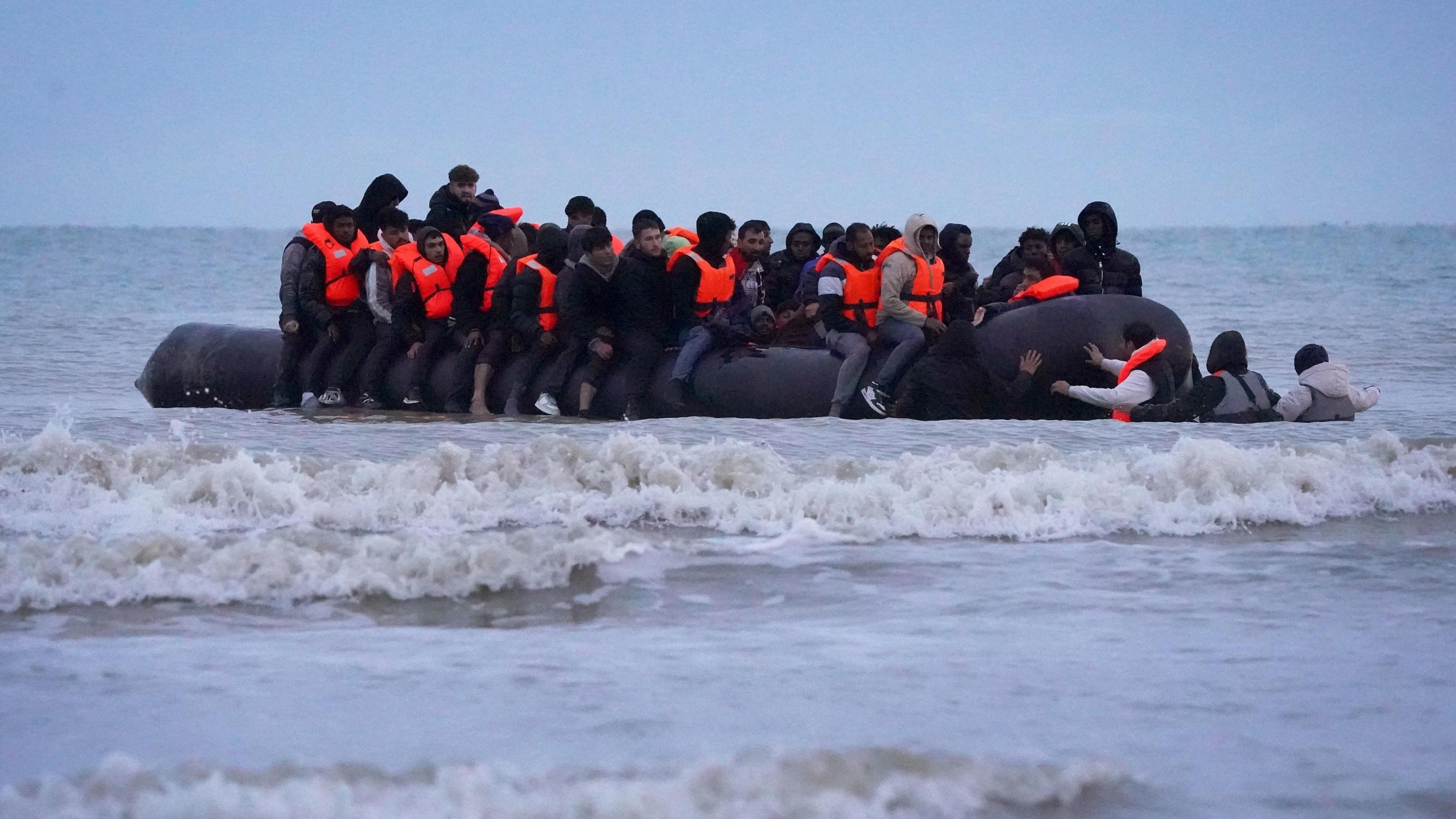Barracks asylum plan presents complex challenges, says council
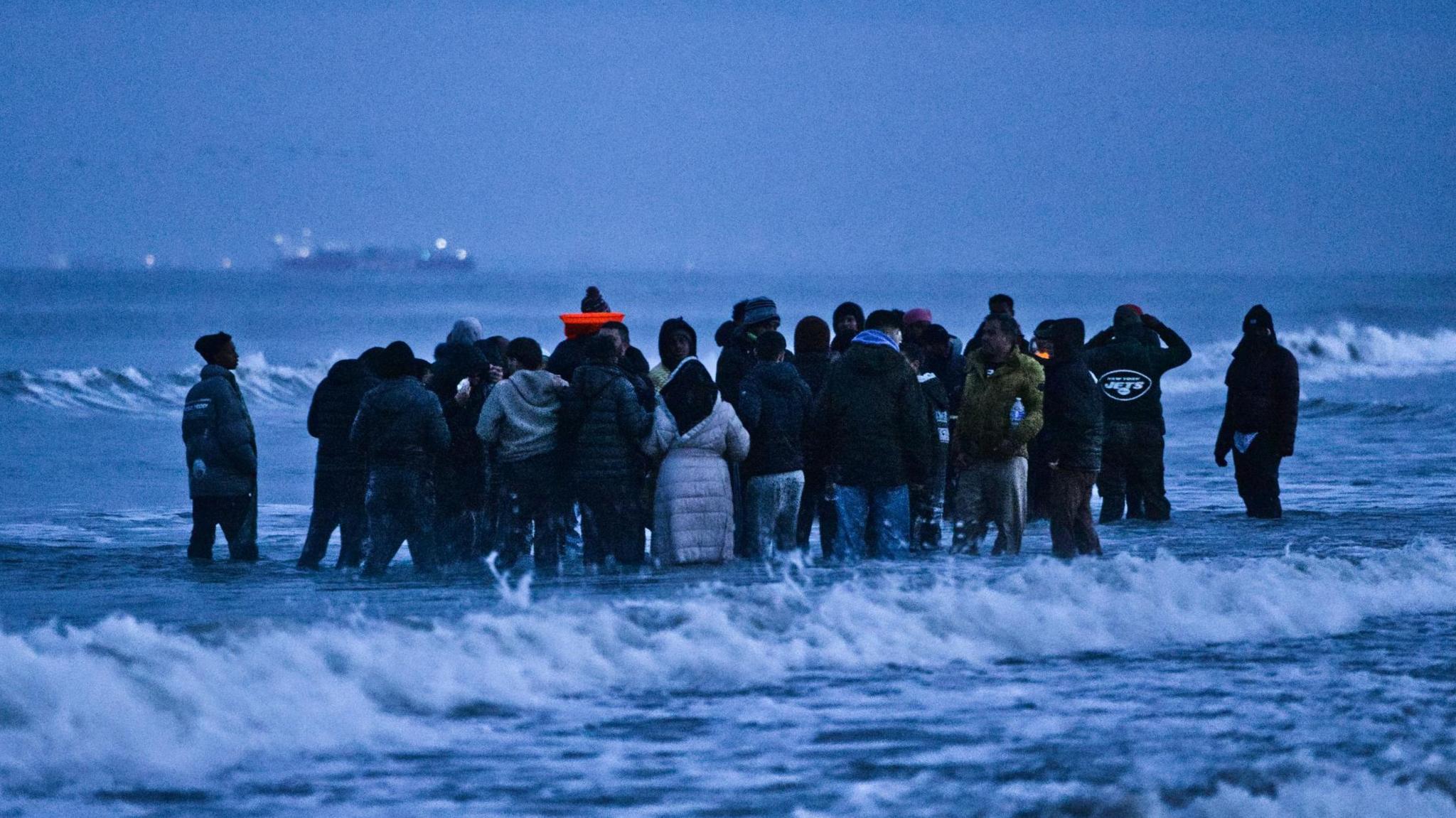
The Home Office plans to use military sites as part of UK government efforts to close asylum hotels
- Published
Highland Council says plans to house asylum seekers at an Inverness barracks presents the local authority with "new and complex challenges".
Cameron Barracks is to be used to provide temporary accommodation for about 300 men as part of UK government efforts to close asylum hotels.
The 140-year-old army recruitment base, near Inverness city centre, has previously been used to house Afghan families.
But ahead of a special meeting on Thursday, external, Highland Council said the Home Office proposals were "unlike any previous resettlement experienced here".
Council to remove flags near asylum seeker barracks
- Published30 October
Highland barracks' role in resettling Afghans to end
- Published16 May
Backlash over plans to house 300 asylum seekers at Inverness barracks
- Published28 October
Last week, Minister of State at the Home Office Alex Norris was challenged at Westminster on the suitability of the barracks.
Norris said any impact on communities would be "minimised" and the security of people living in surrounding areas was "paramount".
He insisted his officials had engaged with the Scottish government and local service providers.
'Key questions'
In a report to Thursday's special meeting of the full council, Highland Council officials have recommended the local authority writes to the Home Office to seek "urgent clarity" on the proposals.
The officers said the Home Office gave the council verbal notification of its intention to use Cameron Barracks on 10 October.
The information was provided on a "confidential basis with clear instructions that this was not to be shared". Media reports on the plans appeared on 27 October.
The Highland Council officials said: "At the point of writing, there remains a lack of detail as regards what the Home Office proposals will mean, with key questions outstanding in relation to the specifics around implementation, community safeguarding and impact on local services.
"Whilst Highland has always been, and will continue to be, a welcoming place for those seeking a safe place to live, the Home Office proposals are unlike any previous resettlement schemes experienced here and present new and complex challenges."
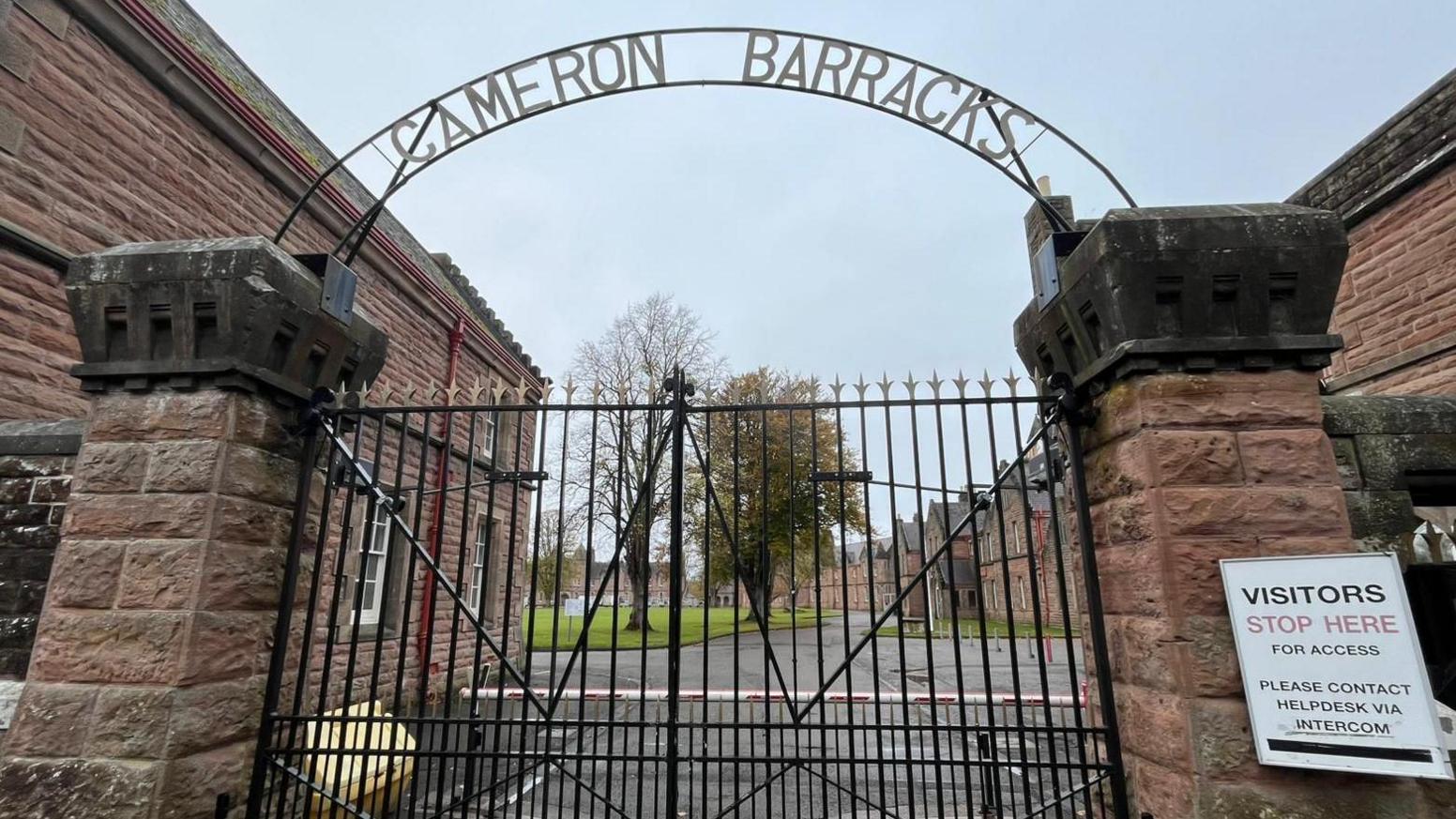
Cameron Barracks is a 140-year-old army recruitment and training base
Council officers said that from the second week of December about 60 people per week could start arriving at the barracks to be housed.
They said the plan was to use the site for 12 months and then it would revert to use as an army training base.
Concerns mentioned in the report include the scale of the proposal, pressures on local services, the potential of protests and the barracks becoming a target for people "deliberately wishing to incite violence and hatred".
According to the report, the Home Office has said activities and services, such as education and religious observance, would be provided at the barracks.
But officials added that asylum seekers would have freedom of movement and access to the city centre was through a residential area.
Crowborough army training camp in East Sussex is also to be used for temporarily housing asylum seekers.
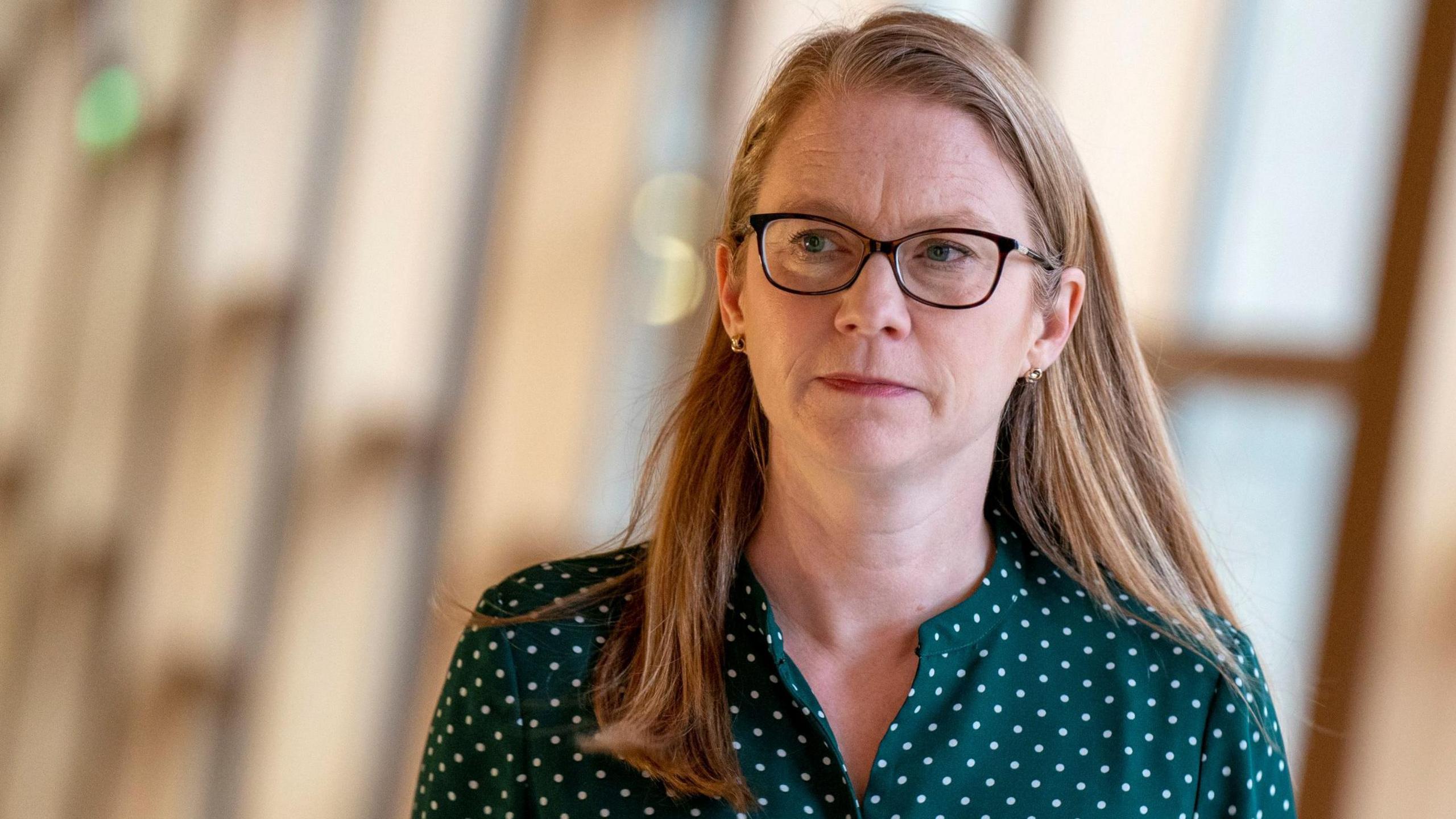
Social Justice Secretary Shirley-Anne Somerville said there were "unanswered questions" over the plans
Social Justice Secretary Shirley-Anne Somerville called for "urgent clarification" on what effects housing asylum seekers in Inverness will have on health, policing and other local services.
Somerville said she had sought a number of reassurances from the UK government after meeting with UK Asylum Minister Alex Norris.
She said: "The Home Office must provide urgent clarity to stop the spread of disinformation amongst communities in Inverness.
"Scotland welcomes refugees and people seeking asylum but it is vital that the Home Office provides clear communication and reassurances on the impact on local services."
A Home Office spokesperson said: "We are furious at the level of illegal migrants and asylum hotels.
"This government will close every asylum hotel. Work is well underway to move illegal migrants into military bases to ease pressure on communities across the country."
The spokesperson added: "We are working closely with local authorities, property partners and across-government so that we can accelerate delivery."

Scottish Secretary Douglas Alexander said organisations in Scotland had been consulted on the barracks plan
On Wednesday, Scottish Secretary Douglas Alexander told MPs the Home Office had consulted the Scottish government as well as "a range of local organisations" on the plans in advance of them being made public.
Alexander said the UK government had engaged with the Scottish government on 15 September on the possibility of housing people at the barracks and Somerville wrote to the UK government about the issue on 26 September.
He said there were also video meetings with "senior representatives" of Police Scotland, NHS Scotland, Cosla and the Scottish government on 9 October.
Meetings were also held several times after that, he added.
Alexander told the Scottish Affairs Committee: "I recognise that the legal obligation we have as a UK government to provide appropriate accommodation to asylum seekers is one that is a matter of significant public sensitivity.
"But I don't think it would be fair to suggest that there hasn't been engagement by Home Office colleagues who lead on this matter for the UK government with a range of local organisations, including the Scottish government.
What is an asylum seeker?
An asylum seeker is someone asking for sanctuary due to dangers in their home country
In the UK, all applications for asylum are processed by the Home Office.
Asylum seekers do not have the same rights as a refugee or a British citizen while they wait for a decision. For example, asylum seekers are not allowed to work.
Successful applicants are given refugee status, but the applicant usually has to leave the country if their claim is rejected and any appeal is unsuccessful.
Related topics
- Published29 October
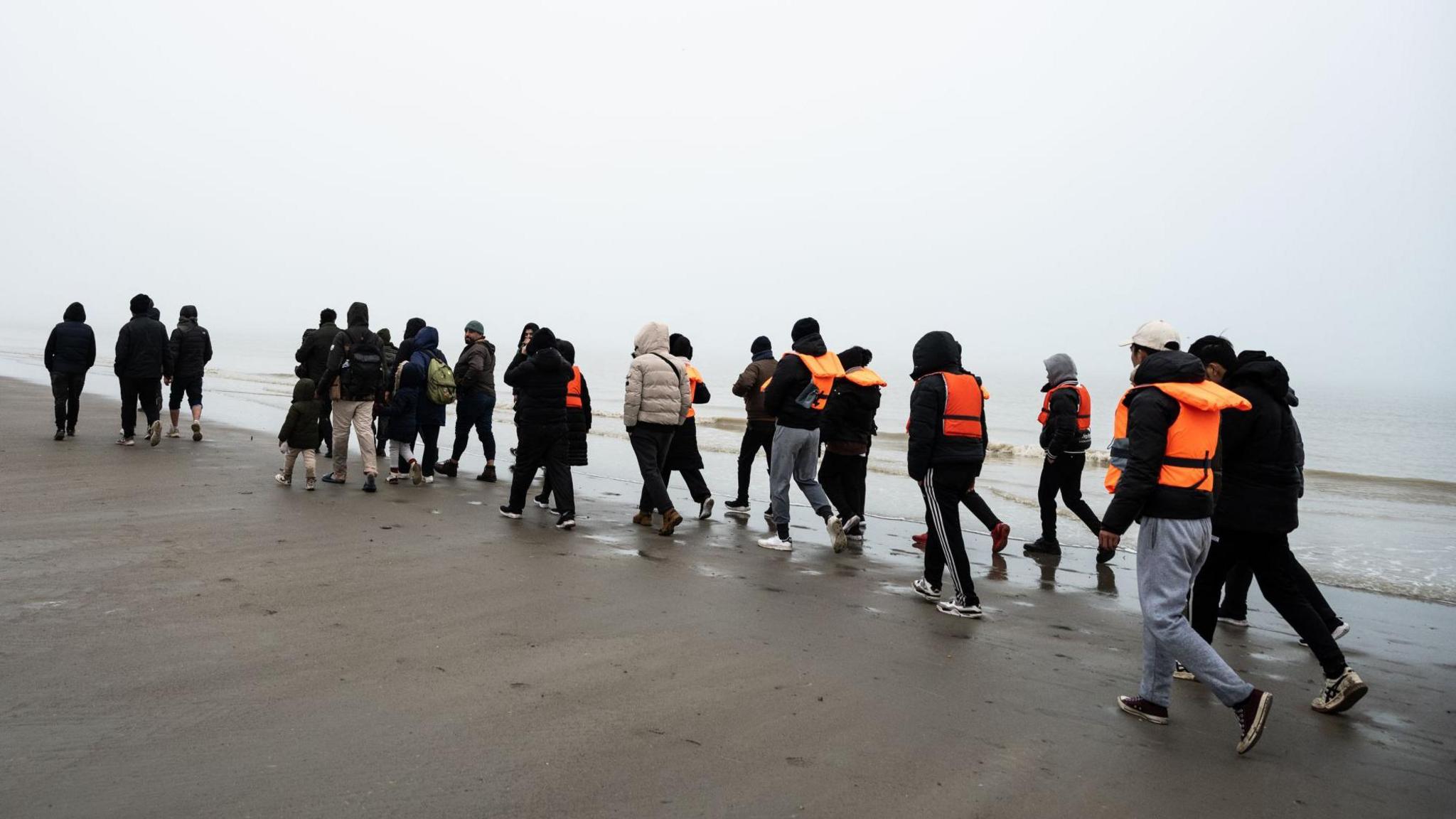
- Published28 October
